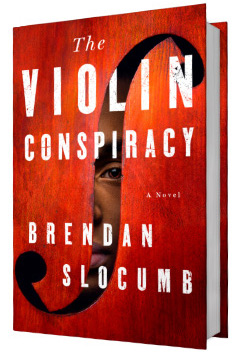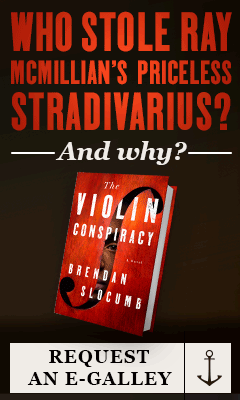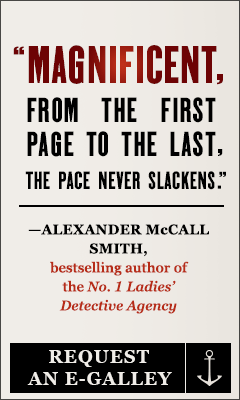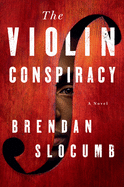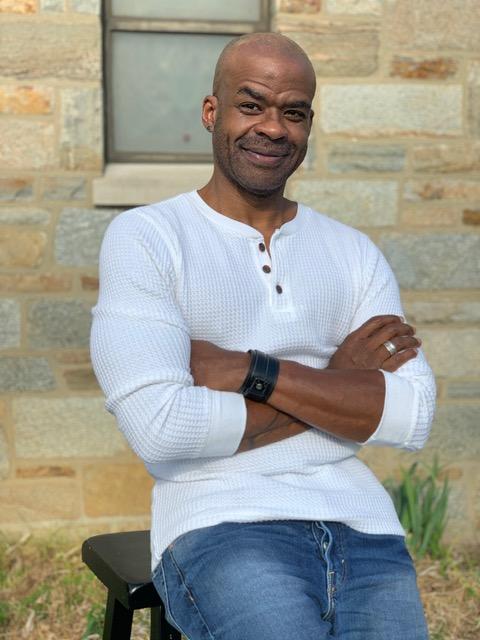The Violin Conspiracy
by Brendan Slocumb
This deeply engrossing literary debut, told via a dual timeline, follows a Black violinist racing to solve the mystery of his stolen Stradivarius, and reveals the story of his improbable trajectory to fame.
Professional violinist Ray McMillian wakes to his worst fear: his prized violin is missing. Inside the empty case--"the obscenity of its open mouth... impossible, as if water were no longer wet"--is a note demanding $5 million for its return. Ray doesn't have that kind of money, despite being a "media darling." Worse, the prestigious Tchaikovsky Competition is a month away. "Everything that everyone had ever thought about Ray--about people who looked like Ray--was now turning into reality," he thinks.
But Ray is determined to win the competition--and recover his Strad. Anyone could have a motive to steal the $10 million instrument, but the detective's top suspect? Ray's family, who, except for his sweet Grandma Nora, never wanted him to have this family heirloom. Ray's mother in particular failed to support his musical ambitions. "Stop with that noise," she was always saying when he was in high school. She wanted him to take the GED to graduate early, "get a real paying job" at Popeyes and start paying rent. Only later, when Ray began booking paid performances and sending the majority of his earnings to his family, did they care about his talent. But after they found out how much the violin was worth, selling it became their priority.
Another potentially guilty party is the Marks family, who also claim ownership of the Strad. But Ray knows that the Markses' ancestor who enslaved Ray's great-great-grandfather gifted the fiddle to him when he freed him. That story is one his Grandma Nora told him, but without proof, it's Ray's word against a white family's.
As the music competition approaches and the suspect list widens--could it be the rival violinist vying for first place?--Ray crowdfunds for the ransom money, all while waiting to see who's trying to cut short a dream he's been working toward his whole life.
Brendan Slocumb's part mystery, part coming-of-age novel unfolds layer by complicated layer. The smooth transition to Ray's past effectively introduces a boy whose love for music is instantly infectious. The steps that lead to the discovery of the Stradivarius proceed with suspense and hope, sharing with readers the anxiously excited emotions of a young man enraptured by music, driven to push himself, ready to prove everyone wrong.
At the same time, the microaggressions and blatant racism that Ray experiences, both in the past and in the present, illuminate a harsh reality. When he takes his violin into a shop, the clerk accuses him of having stolen it. Certain orchestras book him only during Black History Month. His showmanship coach notes: "Your people are known for their jungle rhythms, no?" To the media, to college classmates, to orchestras, he feels seen "as a PR stunt, as something good for ratings, a nod to diversity."
Yet through it all, Slocumb imbues Ray with both an admirable patience and an unyielding self-respect, a clear message that it is important--and necessary--to assert one's own worth. Ray wishes the racist clerk a Merry Christmas; he calmly points out an organization's biases; he proves his competence not through arguing but through his instrument--all because he cherishes a piece of advice from his Grandma Nora to "stay sweet." And Ray does just that, knowing that, as a Black man, "you just put your head down and do the work. You do twice as much work as the white guy sitting next to you, and you do it twice as often, and you get half as far." This mentality, together with Ray's physical connection to the violin as part of his lineage, his legacy, his very being, elevates the search for the Strad from a mere mystery plot to an indelible character arc.
Though Slocumb links a playlist on his website, readers may find no need of it, with the evocative metaphors he uses to convey the music: "the north wind coursing through the living room"; "high soaring phrases leaping like frogs"; "beetles scaling trees, birds lifting off one branch and alighting on another"; "sunlight on a park bench"; "the glitter of water pouring endlessly from a waterfall." Perhaps more moving is Ray's inseparability from playing, how it is "like the first big drop on a roller coaster... the thrill nonstop." The relationship between Ray and his girlfriend is a fiery addition to the story ("her warmth spread through his shirt, her touch like pizzicato"), and Ray's bumbling charisma a welcome comic relief ("Why was he so terrible at talking to this woman? She was violin-shaped, right?").
For those who see themselves in Ray, and for those pursuing their passion, his journey is an unmitigated source of inspiration. The multilayered narrative provides insight into one Black man's hard-won success, encouraging compassion for how people of color must surmount additional, unnecessary hurdles. It also takes society to task for discriminatory obstacles that prove insurmountable. Authentic and unexaggerated, this captivating coming-of-age story meets suspenseful crime mystery is a sharp debut. --Samantha Zaboski



